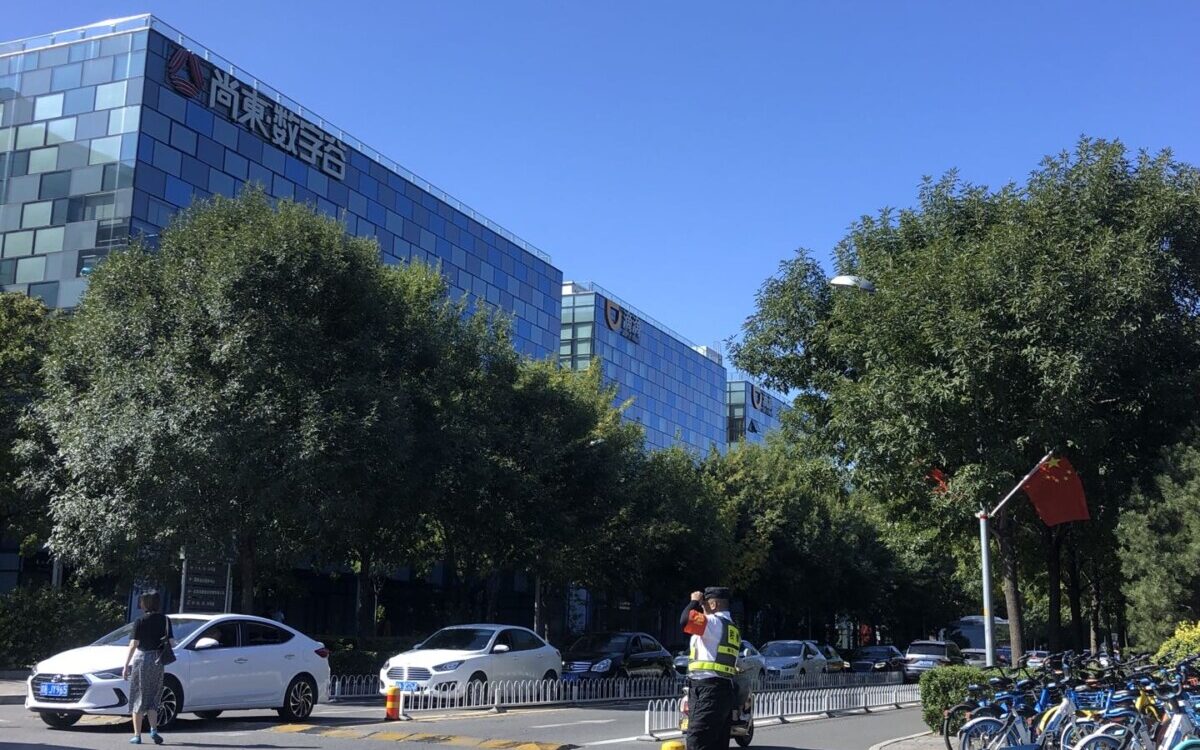| How I Progressed Through My Professional Career |
It has been 10 years since I walked out of the Hearst Greek Theatre at Berkeley, California, where I received my Bachelor of Business Administration. As a young and driven college graduate, I envisioned a career path with endless opportunities and believed that a strong work ethic was the formula to success and financial security. Like many others before me, I was idealistic, single-minded, and determined to prove myself.
At least that was the attitude a US university education has taught me.

Location Change: From San Francisco to Hong Kong
Upon graduation, my new life began when I received a full-time offer from a US investment bank, working at its Hong Kong office. Although I would miss San Francisco, it was the perfect opportunity for me as I saw Asia as the key growth engine of the global economy. Hong Kong was also an ideal location because it is an international financial center and my other hometown where my parents reside.

When everything seemed so exciting and hopeful, reality hit when I entered the corporate work force.
Cultural shift: Chinese matters more than English
When I was in middle school, I was convinced that English is the most important language to master if I wanted to do well in my future career.
I was not wrong, except my first job taught me that English alone is not enough. Being multilingual is essential to thriving in Asia given the importance of the China market.
As an investment banking analyst in Hong Kong, I was expected to use both English and Mandarin Chinese interchangeably, from speaking and IM-ing with colleagues and bosses to communicating with and pitching to corporate clients and investors.
Because Chinese clients constituted the lion’s share of the bank’s businesses and many of the senior bankers were expats, I was required to perform a significant amount of translation work on a regular basis.
That’s right. Translation took up a considerable portion of my day-to-day responsibilities at one of the highest paying entry-level jobs in the world.
Even though this task is region-dependent, it was a surprise, especially when I had all my hopes up about my career as a fresh grad, prepared to do fancy financial modeling, detailed company valuations and complex M&A transaction analyses – of course, I eventually learned how to do these, but there were times when I wondered how I ended up performing the duties of a glorified assistant.
Not to mention I was a terrible translator. My mother tongue is Cantonese, the primary language spoken in Hong Kong. It is a dialect of Chinese, but sounds quite different from Mandarin. I knew some basic Mandarin, could speak it with an awkward Hong Kong accent, but never learned how to type it.
Back then, asking me to perform professional English-Mandarin translation under pressing deadlines was like asking a horse to swim.
Reality hurts sometimes.
It’s all about the money!
In Hong Kong, literally everything revolves around finance and real estate. Topics regarding buying vs. renting properties, what stocks to invest in, and how to build wealth dominate conversations among my colleagues, friends, and family here.
The notion of “money = power” is widely acknowledged and even admired. Pragmatism is the right word to describe this Pearl of the Orient.
Tech is not a popular industry at all. The start-up scene was almost non-existent until recently, with limited talent, capital, and government support. Prime examples of the “respectable” professions in Hong Kong are doctors, lawyers, and bankers.
A business degree is more valuable and difficult to obtain than an engineering degree in the former British colony. The market dynamics and skillsets required are vastly different from those of the Silicon Valley.
Who’s your Daddy?
A defining social phenomenon in Asia (not just Hong Kong) is that your family background and socio-economic status sometimes matter more than your individual capability.
If your family is well-off or appears to be comfortable, and you have a thriving career at a young age, people would attribute your success to your parents.
If you are from a tycoon family (business magnates who wield considerable influence in politics and the society and whose wealth originated from some form of real estate business), people would look up to you and even want to approach you. The top tycoon families and their conglomerates control a significant portion of Hong Kong’s domestic economy.
(For those who are interested in learning more about how these tycoon families slid into their positions of economic power, I would recommend Joe Studwell’s “Asian Godfathers: Money and Power in Hong Kong and Southeast Asia” which is a fascinating read.)
Hierarchy is largely accepted and promoted.
Social mobility is… somewhat poor.
It is the total opposite of my perception in the Bay Area, where meritocracy was taught and encouraged, and diversity was embraced.
Here, meritocracy is still valued, but increasingly marginalized by legacy businesses and outdated corporate and government policies. Diversity? Not so much in terms of career path.
Hustle, Complacency and Struggle
Although Hong Kong did not seem such an attractive work location when I first returned, it worked out for me from a career standpoint.
As an Asian with an undergraduate business degree from an accredited university, I was well-positioned to take up an investment banking role in one of the world’s largest financial centers. I was well-versed in both Western and Chinese cultures (albeit requiring some brushing up on my Chinese language skills) and was able to act as a bridge between my expat seniors and local and China-based corporates.
As I adapted to the lifestyle and work pace here, I came to realize that Hong Kong is actually a vibrant and beautiful city. Crowded, busy and expensive, but incredibly convenient and civilized with a unique blend of Eastern and Western cultures.
I stayed in investment banking for close to seven years, splitting my time between two global banks.
In my first three years, I transformed into a human android and sold my soul, working incalculable hours to help my employer close 27 IPOs and equity placements. Being able to leave the office at 12 am on weekdays was considered “early” while getting to work at 10 am was perceived as “late”.
(Note: this was shortly after the Global Financial Crisis, before the large investment banks consciously made an effort to improve work-life balance for junior bankers following several high-profile banker deaths that were attributed at least in part to brutal work schedules.)
In the next three-and-a-half years, I moved to a UK-based universal bank to perform investment banking advisory work for corporates in the automotive industry. I like cars, and appreciated a better work-life balance and humble office culture, all of which kept me comfortable. By the time I became a senior associate, I started to become complacent, having already established my reputation in the firm with two analysts under my supervision and no hurdles in getting promoted to the next level.
But deep down, I felt anxious as the learning curve was flattening and my career growth seemed stagnant. I could not see myself remaining in the same industry for decades and becoming a senior banker, a perfectly well-respected career path.
Many of my peers in Hong Kong disagreed with my way of thinking, arguing that I would be able to climb up the corporate ladder more quickly and earn a lucrative income if I stayed in banking and did not get distracted.
I held a different view. A high-paying job is great, but it can sometimes handicap you from reaching a farther destination.
Something needed to change. I did not want to specialize in a particular sector yet. Instead, I aspired to expand my professional experience though exploring other young, high-growth industries when I was still early in my career.
Industry Change: From Banking to Auto Tech



Lucky or not, I was approached and interviewed by an electric vehicle (EV) start-up to be one of their founding members as Director of Corporate Finance and Investor Relations (IR), reporting directly to one of the co-founders.
I would join as the youngest member in the executive team, performing similar tasks as I did in investment banking (i.e. capital raising and investor communication) but serving this infant company exclusively. The downside of this function is that it is considered middle/back-office, supporting the main business functions (i.e. automobile R&D, engineering, design and manufacturing).
EV was one of the hottest and most widely discussed emerging industries in the mid-2010s (it still is). The founding team of this start-up was made up of seasoned professionals from BMW and Tesla.
The founders were looking to launch a premium, smart electric SUV that would be designed in Germany, engineered in Silicon Valley, and manufactured in China. The vehicle would also be technologically equipped to cater for next-generation shared mobility and autonomous driving.
How cool is that??
At the time, it was just a six-month old, 50-people company and I would be their first capital markets expert, complementing the automotive-centric leadership. It was a rare career opportunity.
Despite a lot of apparent risks in joining this pre-product, pre-revenue start-up, I was utterly excited about the company’s futuristic vision and decided to make the leap.
I gave up my three-month-away promotion to vice president (also known as associate director in some banks), which is a manager-equivalent, mid-level rank in the banking industry specifically. Not to be confused with the vice president title in a typical corporation. In return, I earned the chance to witness and be part of a global start-up right from zero to launch.
It was a truly remarkable, three-year roller-coaster experience with this start-up. From an all-star founding team, global ambition, unbeatable strategic positioning and achieving “unicorn” status, to cross-border inefficiencies, tech vs. capital-focused debate, cultural differences and internal politics. I will document the unique and rewarding experience in a few separate upcoming posts.
(Note: A “unicorn” is a business jargon to describe a privately held start-up with a valuation over US$1 billion.)
Even though the company did not really make it, the experience and exposure was invaluable. If I could do things all over again, I would still leave banking and choose the same path.
Function Change: From Corporate Finance to Business Operations

What drove me to depart the EV start-up was a call from Beijing. A Chinese internet unicorn was looking for someone Chinese-capable, internationally exposed, with banking, consulting or private equity experience to help expand their operations internationally. The company is known for their dominance in shared mobility.
Leading and managing the strategy and operations of an internet business in an unfamiliar region (neither China nor the US) sounded completely irrelevant to my finance-centric, nine-year resume. Yet they were interested in my candidacy – perhaps because EV and mobility are both in the same transportation ecosystem. Another one-of-a-kind opportunity.
Of course, there were some trade-offs: I would be entering as a middle-level management of this seven-year-old tech company. I would no longer be able to work with the C-suite directly. No more corporate finance analyses, capital market transactions, investor presentations or board meeting preparations.
Compensation: minor downward adjustment on the cash portion, major reduction on the share option portion. Not ideal, but the share options of a well-backed tech unicorn are more likely to be realized down the road, compared to my EV start-up which was at a much riskier stage.
Here is the highlight: relocation is required. But the real twist was that I would not know which country I would be assigned to until after the completion of a six-month, on-the-job leadership training program that was designed for me, since I did not have previous internet operations experience.
I did not know where the training would take place too when I received the offer. All I was told was that Latin America would be my most likely destination.
No pay increase, no promotion, plus the requirement to head to Latin America (without knowing which country) for a six-month training and potentially staying there for good, leaving my friends and family behind? Who in their right mind would go for that??
I had a huge internal debate. It took me five months. Surprisingly (or not), the employer was willing to discuss, negotiate and wait for my decision patiently.
As someone who prioritized personal growth and valuable experiences over near-term profit and job title, I ended up joining this company and went from Hong Kong to Mexico.
I am still with the company at the time of writing this post, which marks my 10th year anniversary in the workforce.
10 years has gone by just like that. What now?

The real business school begins when you start your career. What classes to take depends on how you think about your own future, the career plan you envision, and the paths and digressions you decide to take over time.
Remember: the combination of your mindset, strategies, and actions will determine how far you go, in any line of work.
Over the last decade, I am glad to have learned a whole lot from being an insider of multiple professions.
In terms of my career specifically:
My investment banking days provided a solid foundation of financial skills, business acumen and a real-world understanding of how capital markets really work.
I managed to improve my Mandarin skills (can speak and type enough to get by) through working regularly with my Chinese colleagues and clients.
At the EV start-up, the experience of speaking with hundreds of international and Chinese investors trained me how to structure and deliver professional presentations with confidence. The chance to work closely with the board and founders taught me to think like business leaders.
The opportunities to travel around the world through my roles at the EV start-up and at the tech unicorn exposed me to a diverse set of communities, made me recognize and appreciate various social and cultural differences.
My six-month work assignment in Mexico and switching from finance to tech operations has pushed me further outside of my comfort zone and showed me the importance of developing mental resilience.
Those were my business classes in a snapshot. And there was so much more.
But navigating the first 10 years of my career is just a start. I am still thinking deeply about what I want to do specifically in the next 10 years, and I believe there is much more to discover and achieve if we put our minds and hands to work. Appreciate and make peace with our past, so that we can look ahead.
At the moment, there are a few things that I am looking forward to:
- Career: Continuing to seek and design my own differentiated career+lifestyle experience; beginning to narrow down fields to specialize and master in.
- Travel: Making a list of top-10 countries that I am interested in and determined to visit in the upcoming decade, either in a business or personal capacity.
- Wealth: Continuing to make progress to become a smart investor. Investment areas that I am incredibly keen to understand more include start-ups, stocks, real estate, education, and time.
- Health: Get ripped! I have said this to myself for years now. Time to be disciplined and exercise regularly! As a start, my goal is to exercise three times a week consistently for three months.
- Relationships: Maintain great relationships with my family and close friends. After all, I prefer to spend my time on a few high-quality, trusted relationships which anchor and keep me afloat in stormy waters.
I am still figuring out the rest.
Jack Ma said at the World Economic Forum back in 2018: “When you are 30 to 40 years old, if you want to do something yourself, just do it. You still can afford to lose, to fail.”
I may just take his advice, which is one of the reasons I decided to start my website this year.
How would you characterize your 10-year journey? How would you want to craft your next decade’s story?
Sherman
Time to Mobilize.
